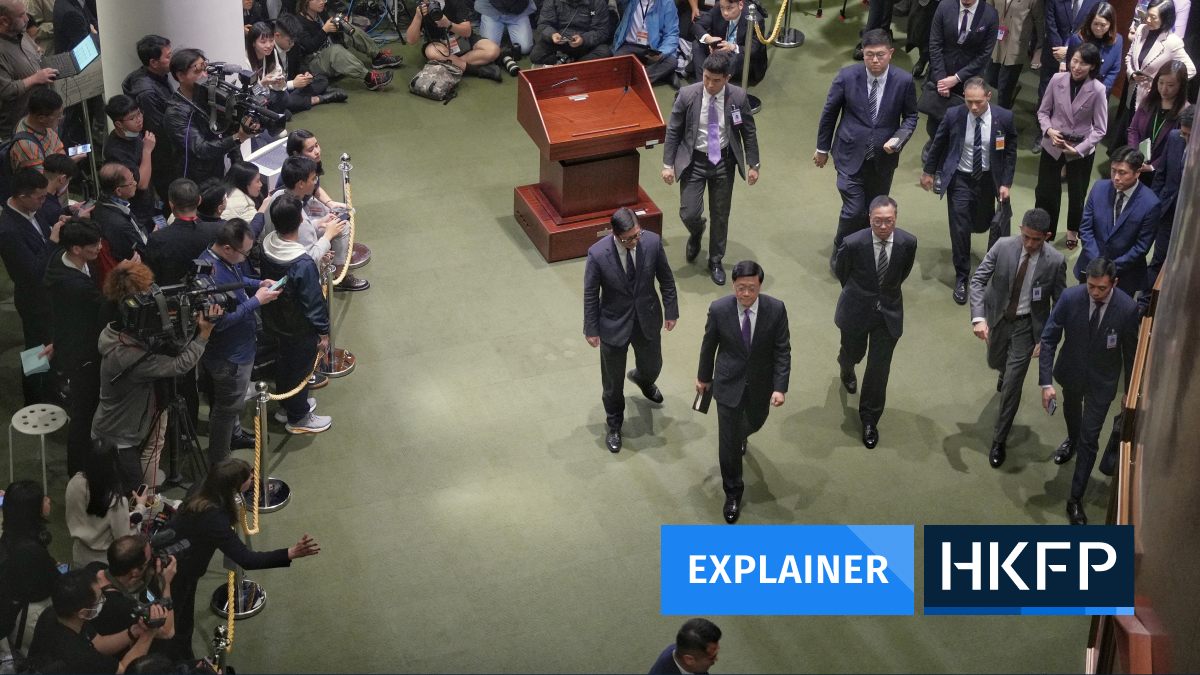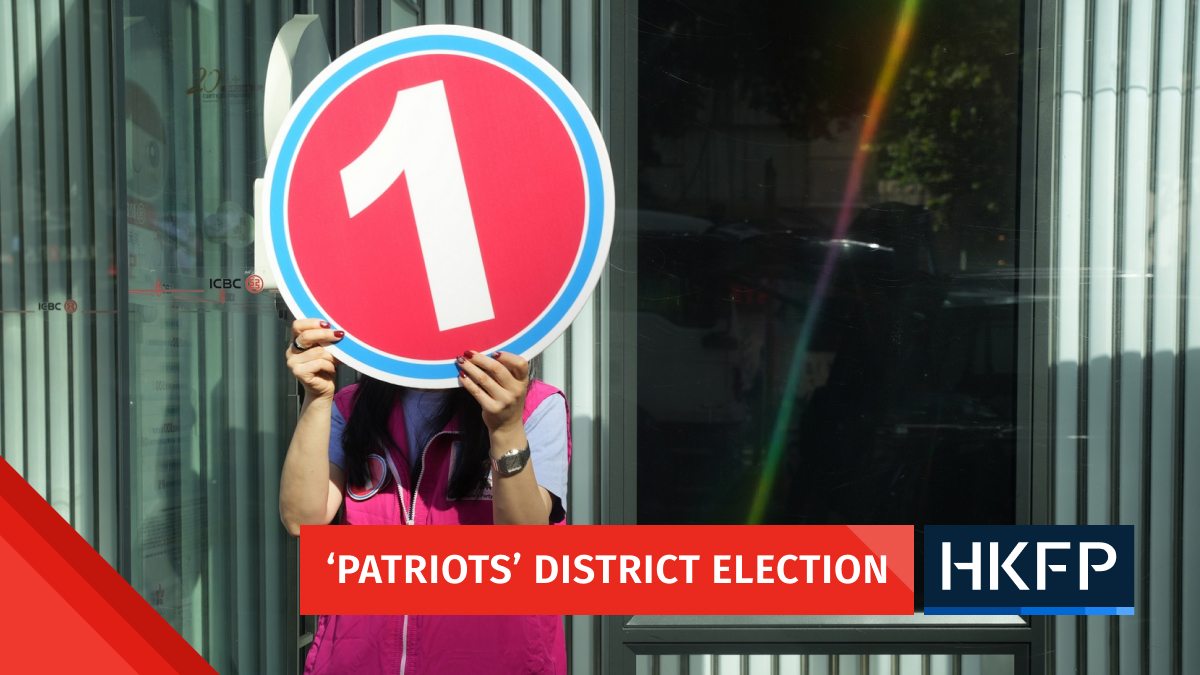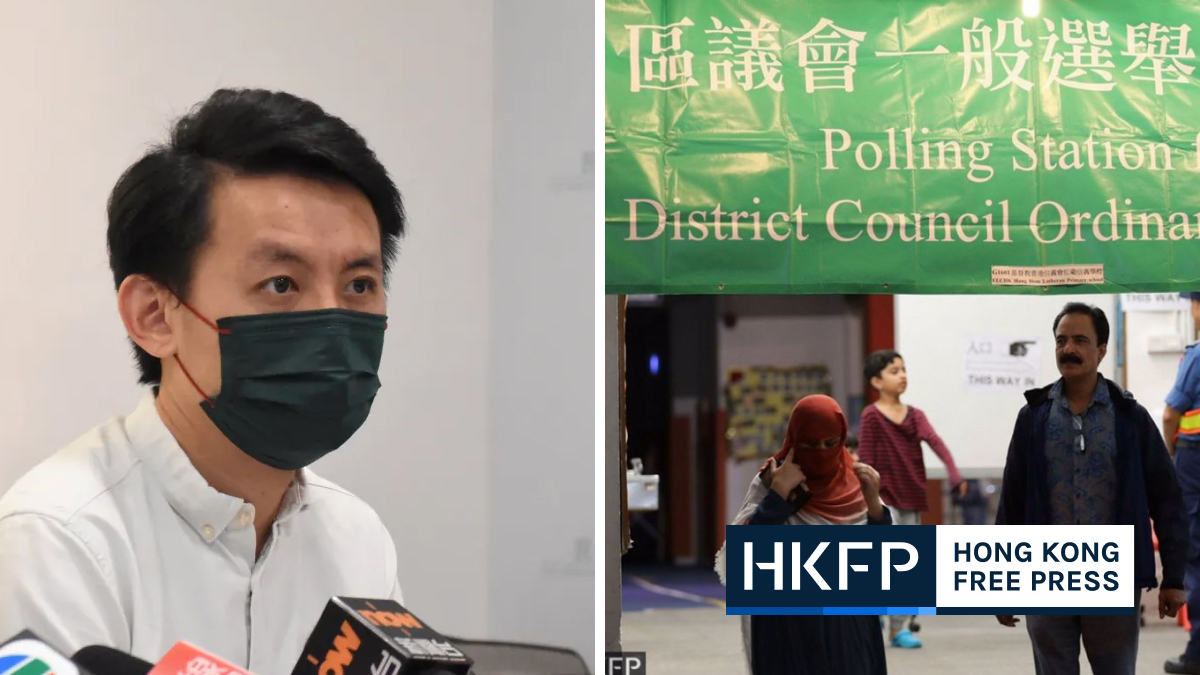As one of only a few pro-Beijing figures in Hong Kong to have spoken in the august halls of the United Nations, Nixie Lam, a hopeful in Hong Kong’s first “patriots-only” election, is seen by many of her supporters as their “international spokesperson.”
“It’s because I know English and I’m willing to speak English,” the University of Queensland graduate says jokingly.
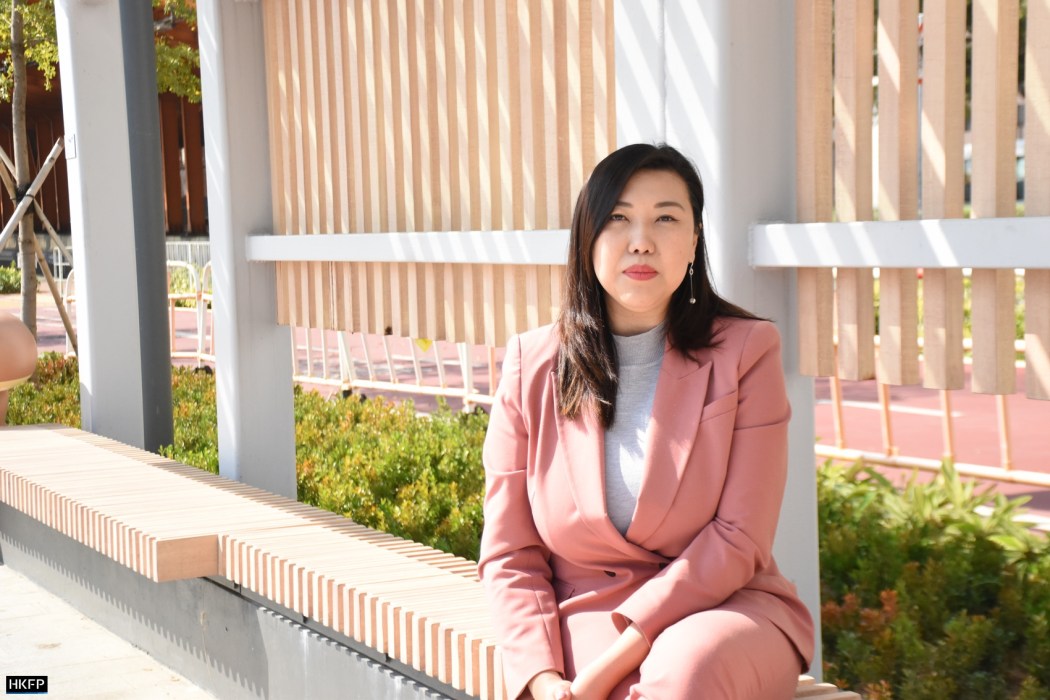
“When I went to Australia, it was like being freed from jail,” laughed Lam. As an only child, the 39-year-old said that her parents were quite strict, but things changed when she went abroad to study: “I lived very liberally, and Australia was very chilled.”
The election hopeful said that her eight years down under not only shaped how she expresses herself but that she learned to be independent: “Even in this election, I’m on my own – I have asked my assistant to handle matters back in the office,” said the Democratic Alliance for the Betterment and Progress of Hong Kong (DAB) member.
When HKFP met Lam at a section of the promenade in Tsuen Wan west – a project that the former district councillor takes immense pride in – Lam was sporting her iconic dusty pink suit, Louboutin flats and holding a leather Chanel clutch.
See also: Interview: Adrian Lau – a self-proclaimed democrat’s lonely race for the legislature
Following her return from Australia aged 23, Lam became a district councillor in 2011 and won a second term in 2015. However, in 2019 she lost her seat when the pro-democracy camp surged to a landslide victory, dominating 17 out of 18 district councils,.
During the 2019 anti-extradition bill protests, the former district councillor – who now forms part of the pro-Beijing camp’s initiative to “spread the correct Hong Kong and China story” on social media platforms – spoke to international media outlets such as the BBC and to the United Nations Human Rights Council in support of the Beijing-imposed national security law.
“It was not until the promulgation of the national security law, a law that is common to all of you, an announcement that was delayed for 23 years due to political manipulation [that stability was restored to Hong Kong] – so stop endorsing violence and stop embracing liars,” said Lam in her speech to the Council in September last year.
“It is ‘One Country’ and ‘Two Systems,’ not ‘One Country’ and another independent state,” Lam told the international body.
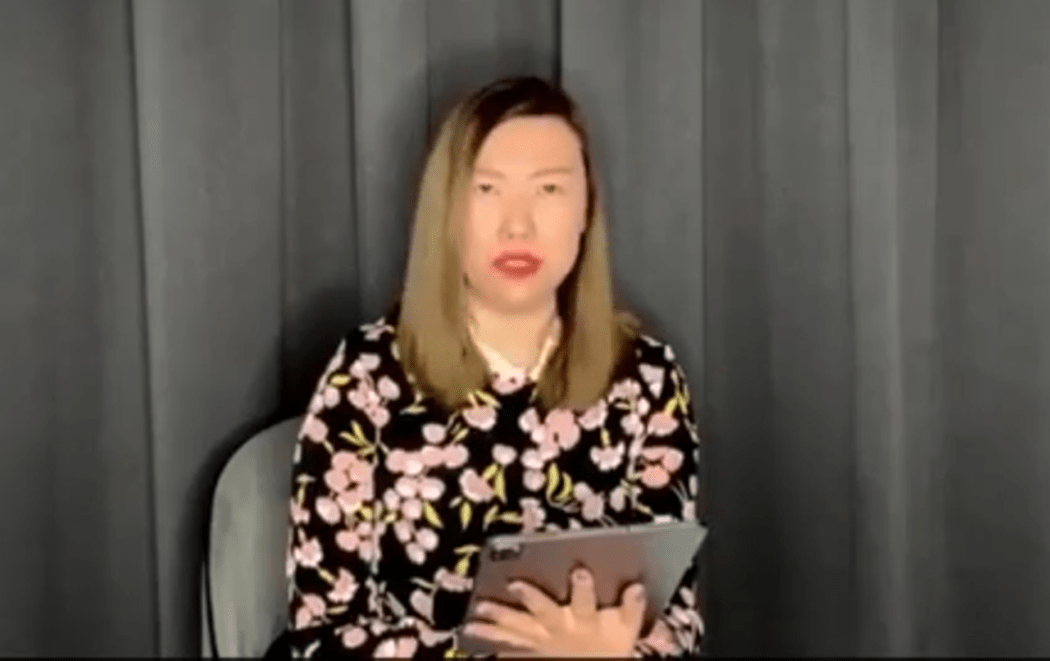
She believes a clear distinction must be made between pro-democracy figures in self-imposed exile, such as former lawmakers Nathan Law and Ted Hui, who have been lobbying the international community on Hong Kong’s matters and herself: “One is betraying their country, while the other is protecting it,” said Lam.
‘Only yourself to blame’
The imposition of a national security law in the wake of the 2019 anti-extradition bill protests in 2019 has seen the jailing and prosecution of a considerable number of prominent figures in the city’s pro-democracy camp – including activists, former legislators and journalists.
See also: Interview: the electrician who sparked Beijing’s interest in Hong Kong’s ‘all patriots’ election
But despite the turmoil of 2019, Lam believes the city has begun its journey back to rational discussion and those behind bars have no one to blame but themselves.
Those who have fallen foul of the national security law were told many times not to continue with things, including the primary election, Lam said. “[N]ot just one person reminded them, several top officials did so, and so did Tam Yiu-chung, and you still didn’t stop, who can you blame? You have only yourself to blame,” she said, in reference to the pro-Beijing heavyweight.
The wannabe lawmaker was referring to the 47 pro-democracy figures who took part in a primary election for the then-postponed Legislative Council (LegCo) election. They are accused of taking part in a conspiracy to commit subversion, for aiming to achieve a majority in the legislature to strike down important government bills, with the intention of unseating the chief executive.

“I have always said that the pro-democracy camp has misjudged a lot of things, and one of those is thinking that the United States will always help them in the long run. No, that’s not gonna happen,” said Lam.
“Don’t have such beautiful fantasies, world-class politics is not that simple, they’re always dancing the tango, but if you stand in the middle you will be stepped on.”
In September, Beijing published a list of incidents it deemed as interference from the US, however most items were public statements or meetings.
While Lam appears to be willing to compromise, and sees herself as “relatively liberal,” there are some positions from which she is not willing to budge.
Traditional pro-democracy parties, such as the Democratic Party and the League of Social Democrats, are not fielding candidates in the election, but a dozen self-proclaimed “non-pro-establishment” candidates have joined the race and some of them are promising to push the chief executive to pardon those arrested and charged over the 2019 anti-extradition bill protests.
DAB member Lam says she will follow her party’s decision on the matter following discussions, but added: “At this moment, from my own perspective, I think if there are any serious offences, I don’t think there should be pardoning. I think they should bear their own legal responsibility.”
The art of compromise
The former district councillor says she is content to be running in the Election Committee constituency in the polls which have come to be dubbed Hong Kong’s first “patriots only” election.
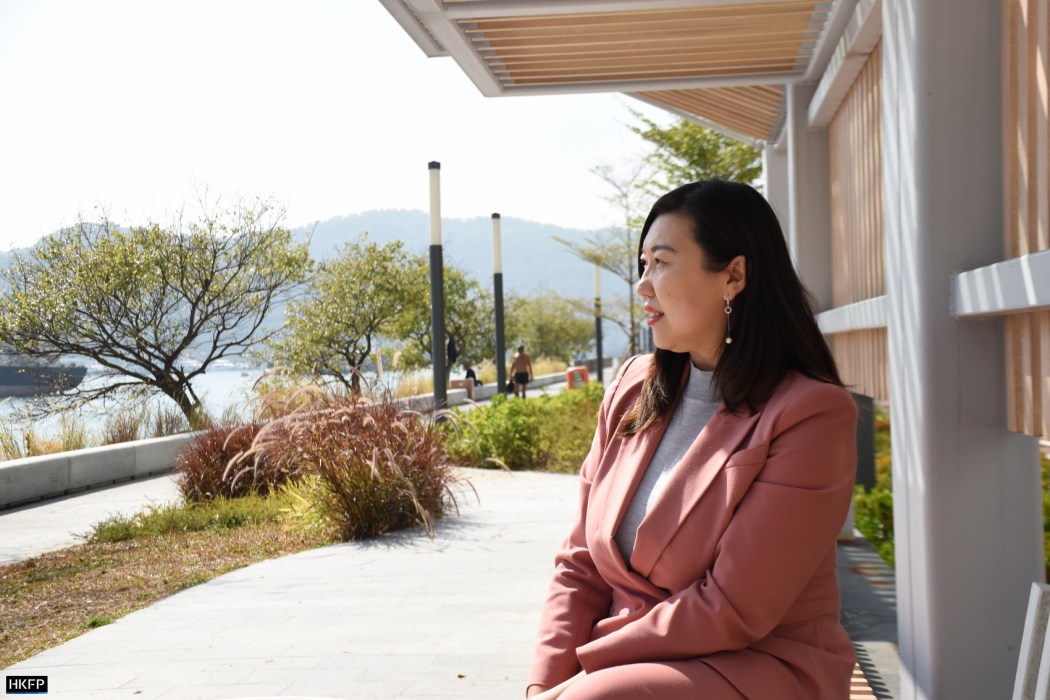
The 1,448-member committee will elect 40 lawmakers, following a sweeping overhaul to the city’s electoral system in March this year. The Election Committee consists of five sectors including commercial, labour, lawmakers, deputies to China’s top decision making bodies, the National People’s Congress (NPC), and Chinese People’s Political Consultative Conference (CPPCC).
Lam, a member of the All-China Youth Federation, was elected uncontested to the Election Committee in September.
When asked who she will be advocating for if her LegCo bid is successful, Lam said “everyone,” as sectors range from finance to social welfare.
In contrast to her previous experience as a list candidate in legislative races – where voters decide based on the interests of their home district – Lam said that the interests of Election Committee members were more specific and her experience of meeting members was similar to that she had when dealing with clients when she worked in banking.
“When you meet them [Election Committee members], they don’t care where they live, they come from the perspectives of their jobs,” she said.
Lam also believes there is room for discussion on every matter and that compromise is the key to problem solving.
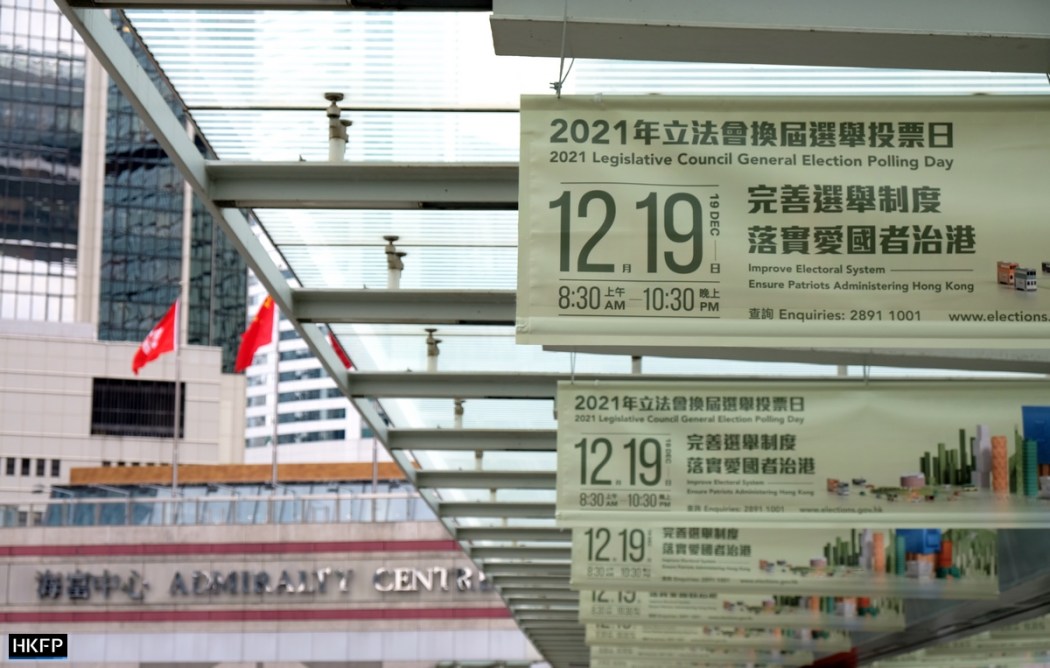
“If we all really want to solve problems there must be compromises and discussions, and I think that is what was sort of lacking in the past, a platform for discussion,” said Lam.
Toeing the party line
The electoral overhaul also meant that democratic representation in the legislature was reduced, as the number of seats elected by geographical constituencies was reduced from 35 to 20. Candidates are also vetted by a pro-Beijing panel and the national security police.
The pro-democracy camp, who previously held veto power over important government bills, resigned en masse from the legislature more than a year ago after four of their colleagues were disqualified by the government.
With virtually no opposition in the LegCo, a record number of bills were passed in the legislature, with lawmakers voting in favour of bills, even if some of them voiced criticism during debates.
But Lam says she had not given thought to such matters yet: “I believe that my views will be reflected within the party,” she said.
“If there is a method by which I can sideline some of my views and accept some other people’s views and push things forward, I would rather pick this option.”
“When it comes to relations with the government in the future, if they have really messed up, they must be criticised, but when it comes to topics that you want to discuss, you have to coax the government, it’s carrot and stick,” she said.
Election committee and functional constituency candidates are listed in full here.
LATEST on the ‘patriots only’ poll
Timeline: Hong Kong’s new security law – from public consultation to passage in 48 days, after ‘27 years’ in the making
Ex-student leader seeks to challenge Hong Kong election law over inciting blank votes in 2021 ‘patriots-only’ legislative race
Over 90% of Hong Kong’s newly elected district councillors sit on the three committees that decide who runs
Hong Kong Democratic Party endorses 8 candidates for first ‘patriots-only’ district council election
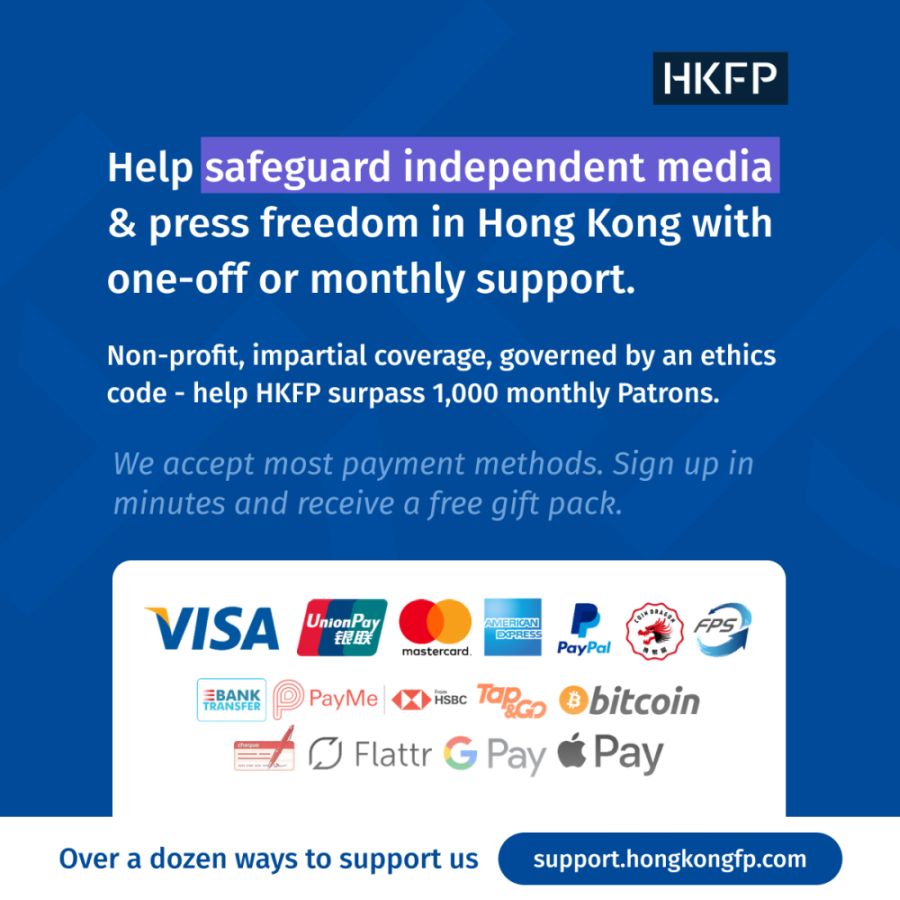
Support press freedom & help us surpass 1,000 monthly Patrons: 100% independent, governed by an ethics code & not-for-profit, Hong Kong Free Press is #PressingOn with impartial, award-winning, frontline coverage.

